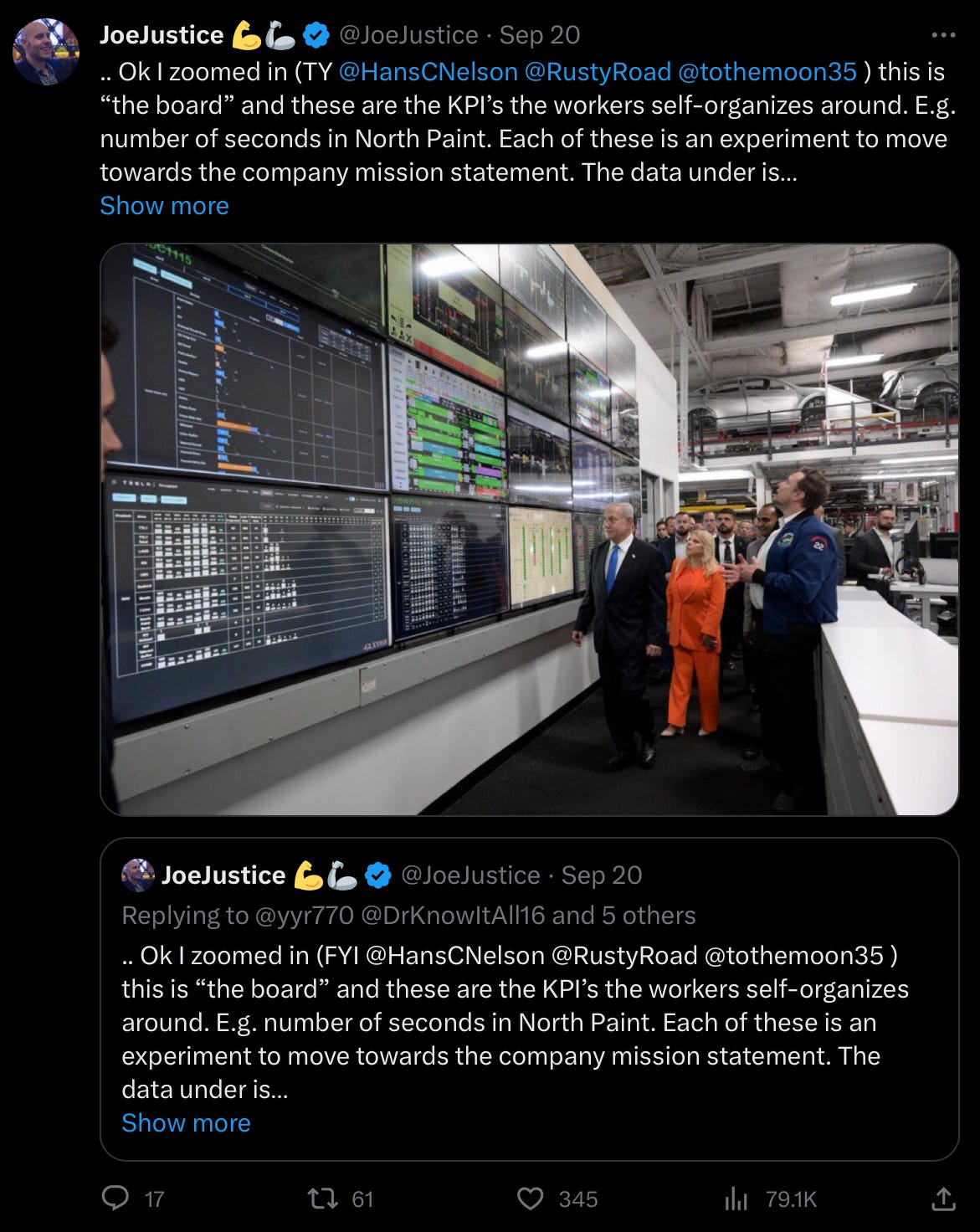Flying cars, taking risks, resignation letters and why it might matter to cut weight by 1 gramme - 4 thoughts from AgileByExample 2023 conference

Recently, I attended the AgileByExample 2023 conference and below, I share four of my subjective highlights from the event with links, quotes and my thoughts. I will add all the mentioned speeches here once they are available on YouTube.
#1 Flying cars from Tesla 🚘
Joe Justice mentioned that engineers from Tesla have seen the work from SpaceX and asked themselves a crazy question - what if we could use some of this technology in cars? What if cars could fly? And they started working on just that. It’s also not the first time some of the technology in Musk’s companies is reused.
This connects (loosely) with a thesis I have that bringing people from different fields to one place can disrupt things nobody thought about. For instance, bringing a sewist to a factory or a language teacher to IT.
It also reminds me of the importance of exchanging knowledge between companies - even from different industries, which I described in an article some time ago.
#2 Have your resignation letter ready 📄
Paul Klipp reminded me of something I tried a few times - having a resignation letter ready and filled from day one of work. It can help you feel in control, know you have options and be bolder in speaking up.
Of course, to have options, you have to do the work. If you can’t quit because of low savings or high interest rates on your mortgage, than that's the first thing to solve for the resignation letter to have a real impact.
#3 How can you reduce the cost by one penny? 📉
Joe shared yet another bit from working at Elon’s companies. No managers exist, and everyone, regardless of role, is working on the production line. There is a plethora of screens showing live (and automatically harvested) data from the production line. Everyone has access to the same information (see image below).
Depending on the business, they ask themselves a question: what needs to happen for us to reduce
the weight by 1 gramme (SpaceX)
power consumption by 1 mW (Tesla)
the cost of production by 1 penny (both)
All of the above are questions for today. Not how can we cut 1000 USD in half a year? Those improvements are so small that they feel inviting instead of overwhelming.
Think about:
How can you save 1 minute of the meeting you just had by better working on the shape of the meeting?
How can you improve the satisfaction from your workshop when it’s still happening instead of waiting for another one to happen?
How can you improve the product by 1% of X?
#4 You need privacy to take risks 🔐
In her talk, Patrycja Obara commented on open offices, which make people act more conservatively. She quotes research stating that to take risks, you need privacy. The same goes for creativity.
“To do creative work, most people need periods of solitude when they are gestating their ideas, then they need periods of sociability when they are testing their ideas, and then they need more periods of solitude when they are refining their ideas.” - New York Times
I disliked working in open spaces since day one and cannot understand why companies tend to go this way when there is plentiful research stating this is just a lousy idea.1
If you work in an open space office, you likely book rooms or private booths to do the work. A great idea might be going to a coffee shop or doing some of your 1-2-1 or smaller group meetings as walks in a nearby park. I did that with my 1-2-1’s; they brought fresh insights and boosted creativity. The key is choosing a route that won’t distract you along the way.
Have you attended the conference? What are your take aways? Do share them in the comments!
—
🎈Share this post if you think it can inspire others to take new action.
Out of many sources you can read:
“A Comparison of Psychological and Work Outcomes in Open-Plan and Cellular Office Designs: A Systematic Review” by Olivia James, Paul Delfabbro and Daniel L. King
“The Immortal Awfulness of Open Plan Workplaces” by David Brooks, New York Times
“The Truth About Open Offices There are reasons why they don’t produce the desired interactions.” by Ethan Bernstein and Ben Waber, Harvard Business Review



